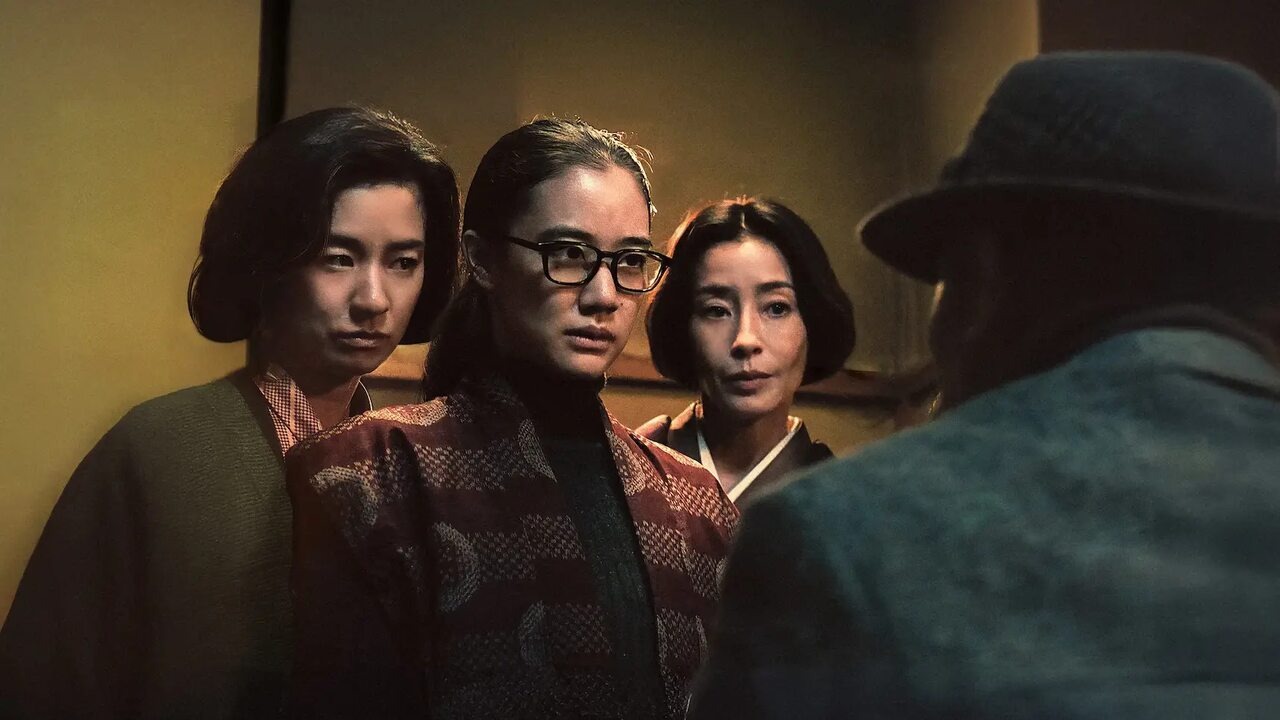The 2024 Japanese drama series Asura on Netflix bears a striking resemblance to Kore-eda’s family-centric storytelling. Adapted from an original Japanese drama, the seven-episode series opens with the startling revelation of an elderly man’s affair.
However, the narrative evolves to center on his four daughters, weaving their lives into a deeply engaging story. While the finale addresses some lingering questions, it leaves others intentionally ambiguous, offering much to reflect upon.

Kotaro’s Bond with Shoji
At the story’s outset, Kotaro Takezawa’s decades-long extramarital relationship shocks his daughters. Their disbelief stems not just from his advanced age but also from discovering that their mother, Fuji, had long been aware of the affair.
Unable to confront her husband or confide in anyone, Fuji endured the pain in silence. With her passing, Kotaro’s daughters gradually come to terms with his secret, especially after learning that his lover, Tomoko, has moved on. Despite this, Kotaro maintains a connection with Shoji, Tomoko’s son, whom he deeply cherishes.
Shoji, unaware that Kotaro is not his biological father, continues to see him as a paternal figure. Even after Tomoko ends their relationship by claiming to have remarried, Kotaro discovers the truth during one of his secret meetings with Shoji.
Learning that Tomoko lied to sever ties, Kotaro approaches her, and they decide to part ways for Shoji’s sake. Nevertheless, Kotaro’s attachment to Shoji proves unshakable, and they remain in contact, despite Tomoko’s intentions to end their bond.
Tsunako’s Despair and Ambiguity
A distressing gas leak at Tsunako’s house prompts Makiko to rush to her sister’s aid. The neighbor’s claim that it was a suicide attempt adds to her worries.
Tsunako, burdened by the loss of her husband and her son’s departure, sought solace in an affair with her employer, Masukawa. Though she considered ending the relationship, she found herself unable to move forward.
By the series’ conclusion, Tsunako appears reconciled with her choices, displaying no shame in her actions. When asked about the incident, she dismisses it as an accident but later responds with silence, leaving viewers to question her true intentions.
Her struggle to accept her unfulfilled relationship hints at a longing for permanence, possibly motivating her alleged actions during Masukawa’s visit that night.
Takiko’s Unexpected Support for Sakiko
The dynamic between Takiko and Sakiko is fraught with tension, stemming from their stark differences in personality and life choices. While Takiko excelled academically, Sakiko’s charm drew attention, creating a sibling rivalry. Despite this strained relationship, Takiko steps in to protect Sakiko when she becomes vulnerable.
When Sakiko confesses to being exploited by a stranger, Takiko immediately takes action, defending her sister and confronting the man. This act of solidarity reveals the strong familial bond that overshadows their rivalry. Sakiko finds relief not only from her predicament but also from her husband Hide’s recovery, hinting at a hopeful future.
Makiko and Takao’s Complex Marriage
The theme of infidelity runs through Asura, reflecting both betrayal and reluctant acceptance. Makiko, initially outraged by her father’s affair, finds herself in a similar situation when suspicions about her husband Takao arise. Believing his secretary Akagi might be his mistress, she grapples with the painful reality of marital unfaithfulness.
Through these interwoven narratives, Asura delves into the resilience and problems of familial relationships, painting a vivid portrait of love, betrayal, and acceptance. Each character’s journey underscores the sacrifices and compromises that define their shared experiences.



